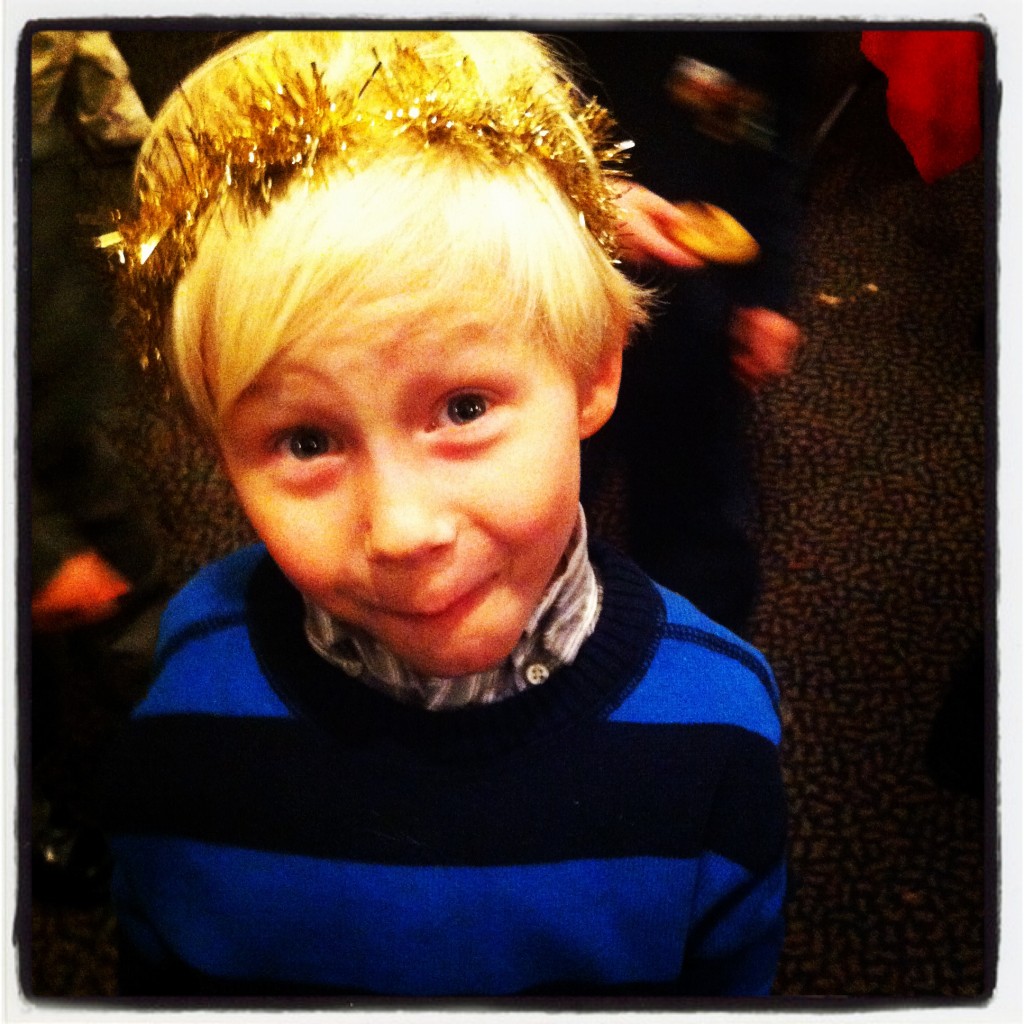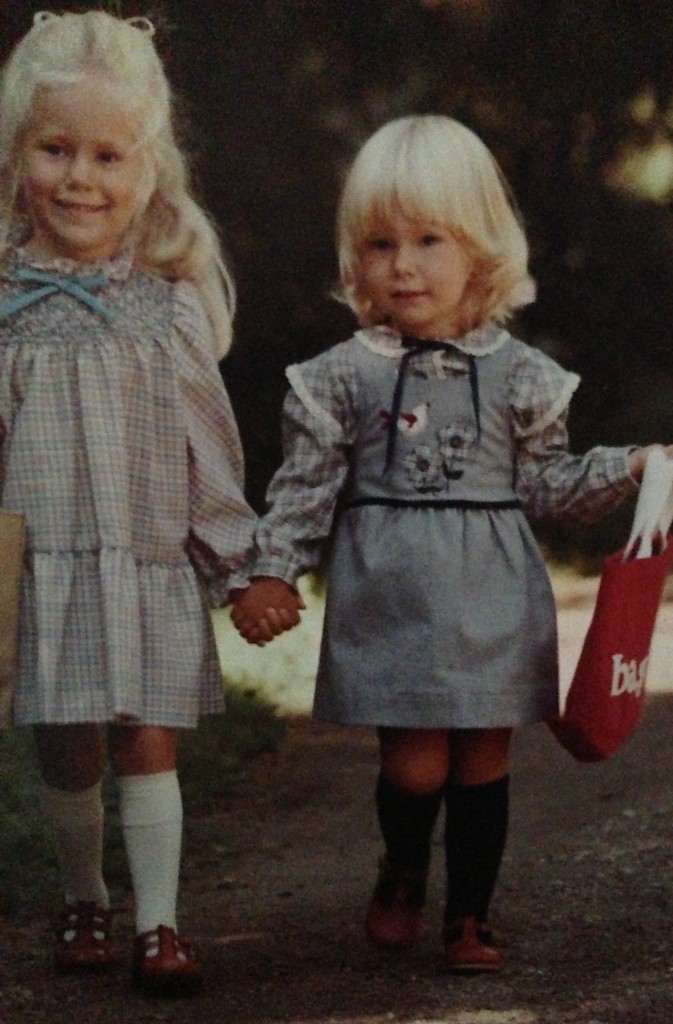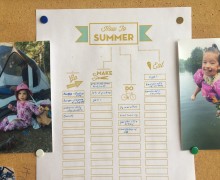
My son Noah is five years old and is in kindergarten. He’s adorable — completely and totally. He’s sweet and loving, happy and generous. He’s got charm and charisma and is smart as a whip. Pretty much all who know him are smitten.
He also lies. A lot.
He’s so cute and the lies are so inconsequential and often funny, so up until now we haven’t thought much of it. He says “no I didn’t” when we saw it happen. And “no I didn’t” when we heard him say it. Then “no I didn’t” again when we point out that he, in fact, did do it, and that we actually saw it. When caught, he doubles down.
Eventually we say something vague about how we know he’s lying and that that is not allowed, administer some minor punishment, and change the subject.
But then this weekend this happened:
Owen has a plastic sword that was part of a Percy Jackson costume a few years ago and was promptly confiscated for I’m sure a very good reason and hidden in the basement. Years passed. A couple weeks ago he found it. Since both boys are currently obsessing over Lord of the Rings (Owen on his third reading of the trilogy; Noah through osmosis and brother-worship), this sword is a hot commodity.
On Friday night Owen was looking high and low for the sword. I was helping, Noah was helping, they were discussing where they’d seen it last, where they had played with it, etc. They looked up and down and all around. Eventually I just said something annoyingly mom-ish like “it will turn up” and quit trying. Life went on.
Saturday I was changing the sheets on Noah’s bed and discovered the missing sword — under his mattress.
Wow. Not only had he taken his brother’s sword and hid it, he had knowingly perpetrated a hoax on all of us and faked helping with the search.
But wait, it gets better.
I called him in and wordlessly pointed to the sword, and I so wish I’d had a camera, because the look on his face was not remorse or fear or guilt. It was pride.
He’d bested his older-by-six-years brother. He had the sword. He was proud.
It was all I could do not to laugh. (See above: charisma and charm.) And though I was a teensy bit proud of him too, I managed to talk sternly about how big a deal this was, how lying is very, very bad, and that there was nothing good about this situation. I might have gotten through to him, just a bit, but I somehow I doubt even that. He was clearly working hard to keep from smiling.
Oh boy.
So now we must get serious about lying. We need to figure out why he does it, what motivates him or matters the most, and devise some kind of parenting plan to help him learn that lying is not acceptable. I admit to not being sure how to go about this.
Then I remembered the cats: The lying cats.
 When I was seven and she was five, my sister and I each had one, made of construction paper and hanging on the door frame between the kitchen and the dining room. They each had very long tails. (I remember being impressed and slightly jealous that my mom could make something that looked so good out of paper. My paper animals certainly never looked like that.)
When I was seven and she was five, my sister and I each had one, made of construction paper and hanging on the door frame between the kitchen and the dining room. They each had very long tails. (I remember being impressed and slightly jealous that my mom could make something that looked so good out of paper. My paper animals certainly never looked like that.)
If we got caught in a lie, our parents cut an inch off the tail. If your tail was gone, you got a spanking. I don’t remember ever getting that far, though I know I had some inches cut off mine. My sister definitely lost her tail — she had drawn a picture of a house, sun, and tree all over the hood of my mom’s new AMC station wagon and when, shockingly, my father was really unhappy about it (she thought he would be; it looked so much nicer!) she was so startled she was forced to lie and say “Jenny did it!”
Somehow the marker on her hands, face, and jeans and the Mr. Sketches in her pocket gave her away. She lost the whole tail in one snip.
(She has no recollection of being spanked, though. The guilt and trauma of losing the whole tail in such a dramatic moment might have been enough.)
I’m sure our parents were at a similar wits end and I remember my sister’s lies being mostly funny and inconsequential, just like Noah’s. I bet they tried hard to stop themselves from laughing, too. I’m sure they didn’t have any better idea than I do now.
Except that I remember the cats, very well, and so does my sister. Thirty-plus years later I can see them hanging on the oak door frame with their perfectly symmetrical green paper eyes — how DID she do that? — and their long, black tails, curled up at the end. So maybe it worked, just a little bit.
Now that I’m all grown up, I wonder if I can make a good paper cat.
P.S.
A friend of mine posted this article on my Facebook wall after reading this. I think it is very helpful, so I’m adding it here.
I especially like this passage:
Lying is wrong, it’s hurtful and, in our home, we tell the truth. But don’t make it a moral issue. Make it a technical issue. You broke the law. You broke the rules. These are your consequences.
— from Why Kids Tell Lies and What to Do About It
Do you have any ideas or solutions to share?




I love the cat story from your childhood; and especially like this quote from one of the comments on your friend’s link. “It can be helpful to put lying into perspective and view it as what it is, a faulty problem-solving skill that a child may continue to use until he/she learns a replacement skill.”
Read more: http://www.empoweringparents.com/Why-Do-Kids-Children-and-Teens-Lie-What-To-Do-About-It.php#ixzz2QMK7gu1X
Thanks Anne! I agree, that is a great insight. I think Noah lies to try to keep control of his universe. His greatest anxiety is things not going as he expected. Getting caught doing something wrong or being punished changes his trajectory, so he lies to avoid it. That’s my current theory anyway. We shall see!
Jen